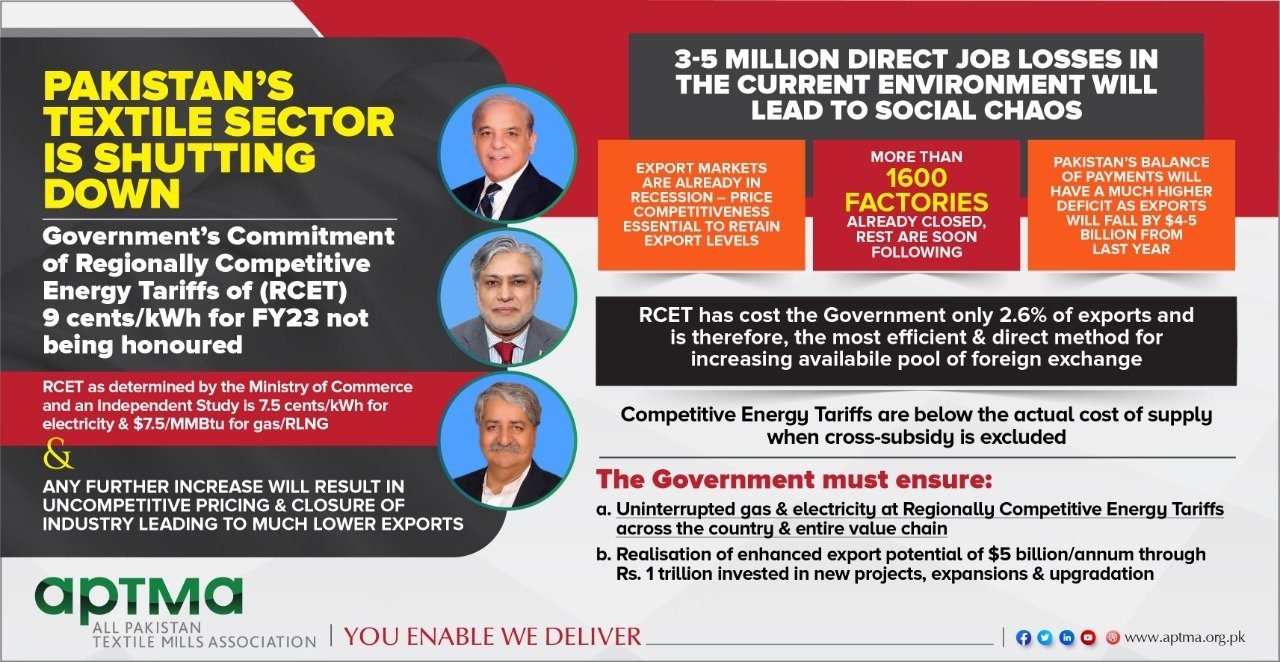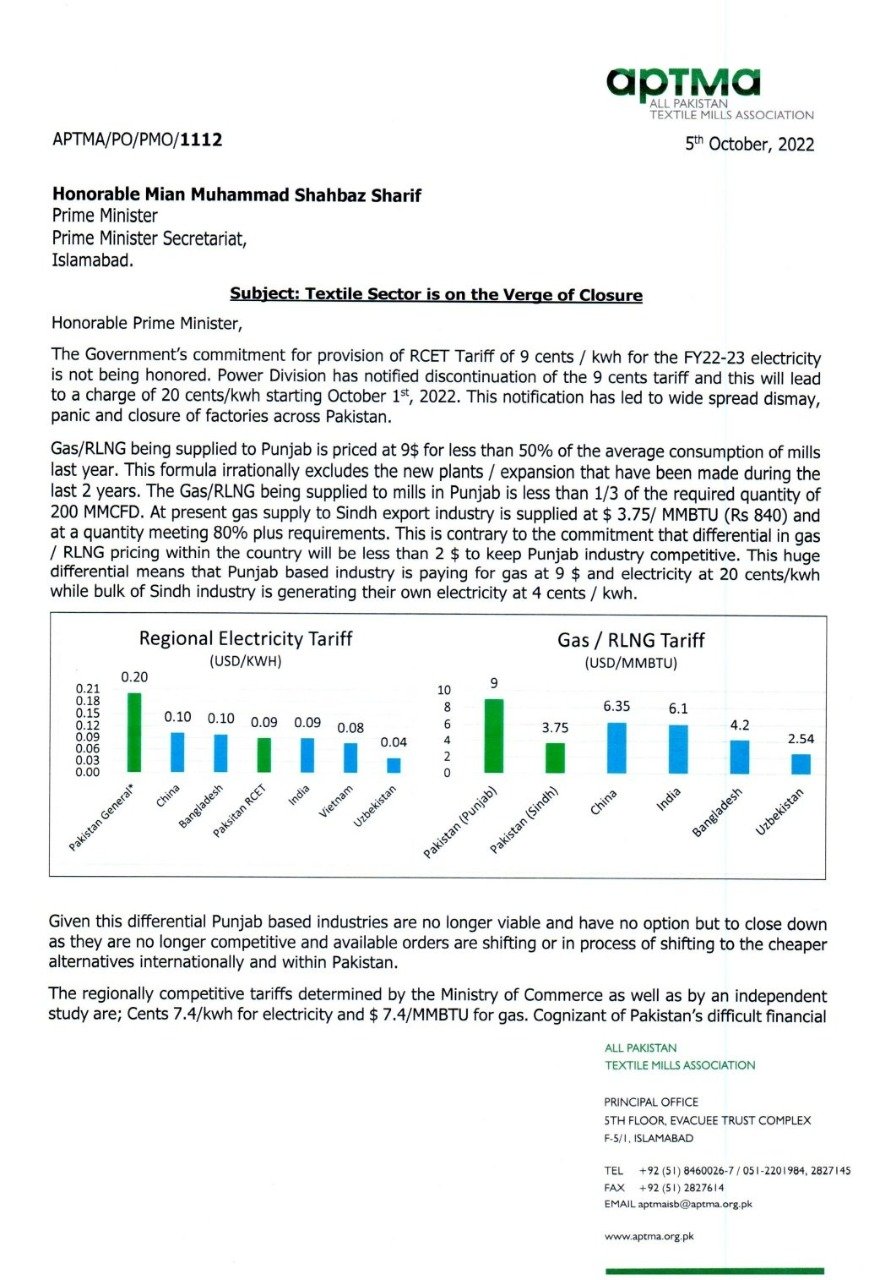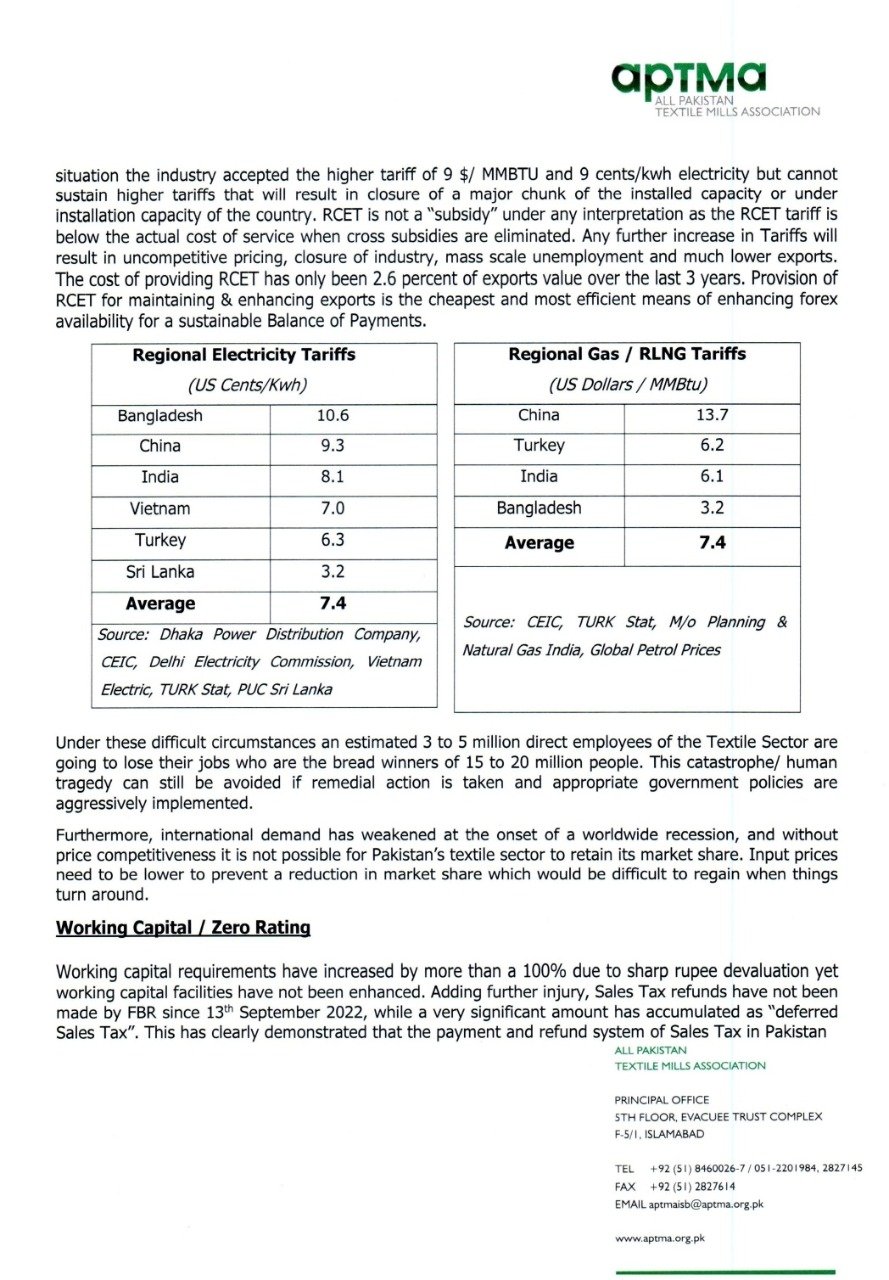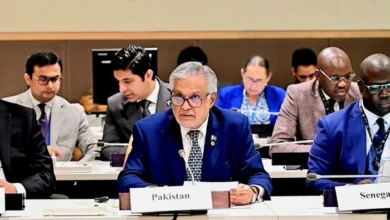Ishaq Dar stops APTMA’s ad highlighting textile industry on verge of closure
Finance Minister Ishaq Dar has stopped the publication of APTMA's ad highlighting the textile industry on verge of closure.
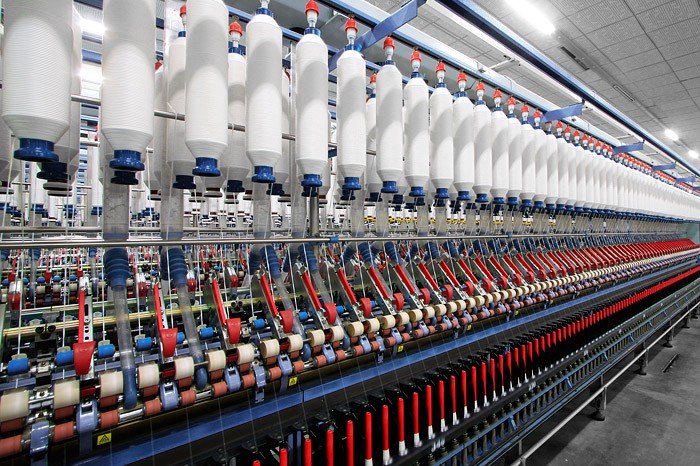
Finance Minister Ishaq Dar has stopped the publication of All Pakistan Pakistan Textile Mills Association’s (APTMA) ad highlighting the textile industry on verge of closure.
Through the advertisement, the APTMA criticised the federal government for not granting the regionally competitive energy tariff (RCET) up to 9 cents/kWh for FY23.
It highlighted that the wrong policies of the government will result in 3-5 million job losses. It further stated that export markets are already in recession hence price competitiveness is essential to retain export levels.
APTMA stated that more than 1,600 factories were already closed and the remaining are also on the verge of closure. It added that Pakistan’s balance of payment will have a much higher deficit as exports will fall by $4-5 billion from last year.
It added a note saying, “RCET has cost the government only 2.6% of exports and is, therefore, the most efficient and direct method for increasing the available pool of foreign exchange.”
The textile mills demanded the government to ensure uninterrupted gas and electricity at RCET across the country and entire value chain besides realising enhanced export potential of $5 billion/annum through Rs1 trillion invested in new projects, expansions and upgradation.
APTMA’s letter to PM
The APTMA letter to Prime Minister Shehbaz Sharif read, “The Government’s commitment for provision of RCET Tariff of 9 cents/kwh for the FY22-23 electricity is not being honored. Power Division has notified discontinuation of the 9 cents tariff and this will lead to a charge of 20 cents/kwh starting October 1, 2022. This notification has led to wide spread dismay, panic and closure of factories across Pakistan.”
“Gas/RLNG being supplied to Punjab is priced at 9$ for less than 50% of the average consumption of mills last year. This formula irrationally excludes the new plants / expansion that have been made during the last 2 years. The Gas/RLNG being supplied to mills in Punjab is less than 1/3 of the required quantity of 200 MMCFD.”
“At present gas supply to Sindh export industry is supplied at $ 3.75/ MMBTU (Rs 840) and at a quantity meeting 80% plus requirements. This is contrary to the commitment that differential in gas /RLNG pricing within the country will be less than 2 $ to keep Punjab industry competitive. This huge differential means that Punjab-based industry is paying for gas at 9 $ and electricity at 20 cents/kwh while bulk of Sindh industry is generating their own electricity at 4 cents/kwh.”
“Given this differential Punjab-based industries are no longer viable and have no option but to close down as they are no longer competitive and available orders are shifting or in process of shifting to the cheaper alternatives internationally and within Pakistan.”
“The regionally competitive tariffs determined by the Ministry of Commerce as well as by an independent study are; Cents 7.4/kwh for electricity and $7.4/MMBTU for gas. Cognizant of Pakistan’s difficult financial situation the industry accepted the higher tariff of 9 $/ MMBTU and 9 cents/kwh electricity but cannot sustain higher tariffs that will result in closure of a major chunk of the installed capacity or under installation capacity of the country, RCET is not a “subsidy” under any interpretation as the RCET tariff is below the actual cost of service when cross subsidies are eliminated.”
“Any further increase in Tariffs will result in uncompetitive pricing, closure of industry, mass scale unemployment and much lower exports. The cost of providing RCET has only been 2.6 percent of exports value over the last 3 years. Provision of RCET for maintaining & enhancing exports is the cheapest and most efficient means of enhancing forex availability for a sustainable Balance of Payments.”
“Under these difficult circumstances an estimated 3 to 5 million direct employees of the Textile Sector are going to lose their jobs who are the bread winners of 15 to 20 million people. This catastrophe/ human tragedy can still be avoided if remedial action is taken and appropriate government policies are aggressively implemented.
“Furthermore, international demand has weakened at the onset of a worldwide recession, and without price competitiveness it is not possible for Pakistan’s textile sector to retain its market share. Input prices need to be lower to prevent a reduction in market share which would be difficult to regain when things turn around.”
Working Capital / Zero Rating
“Working capital requirements have increased by more than a 100% due to sharp rupee devaluation yet working capital facilities have not been enhanced. Adding further injury, Sales Tax refunds have not been made by FBR since 13 September 2022, while a very significant amount has accumulated as “deferred Sales Tax”. This has clearly demonstrated that the payment and refund system of Sales Tax in Pakistan,” said APTMA.
Ishaq Dar to meet PTEA
In another development, Ishaq Dar will hold a meeting with Pakistan Textile Exporters Association (PTEA) delegation today after the textile industry started facing a risk of economic collapse in the country.
Finance Minister Ishaq Dar has invited the textile exporters for negotiations on the demand for restoration of special energy tariff for the export industry.
Under the energy tariff, the entire textile value chain was also given a subsidy of $1.20 per MMBTU on gas. However, this special energy tariff has been abolished by the current government from October 1, 2022. It should be noted that it has taken at least four years for Pakistan to regain its export share in the foreign markets and during the last two years.
The textile exporters have invested five billion US dollars to increase their production capacity to achieve a 35 billion US dollar export target in the next five years. In such a situation, if the special energy tariff is not restored, it is feared that it would reduce the exports as well as increase unemployment due to the closure of the industry, according to The News.
It should be noted that the government’s decision to end the special energy tariff had a strong reaction from various segments of the textile sector and some industrial organisations are considering initiating a protest movement in this regard.
